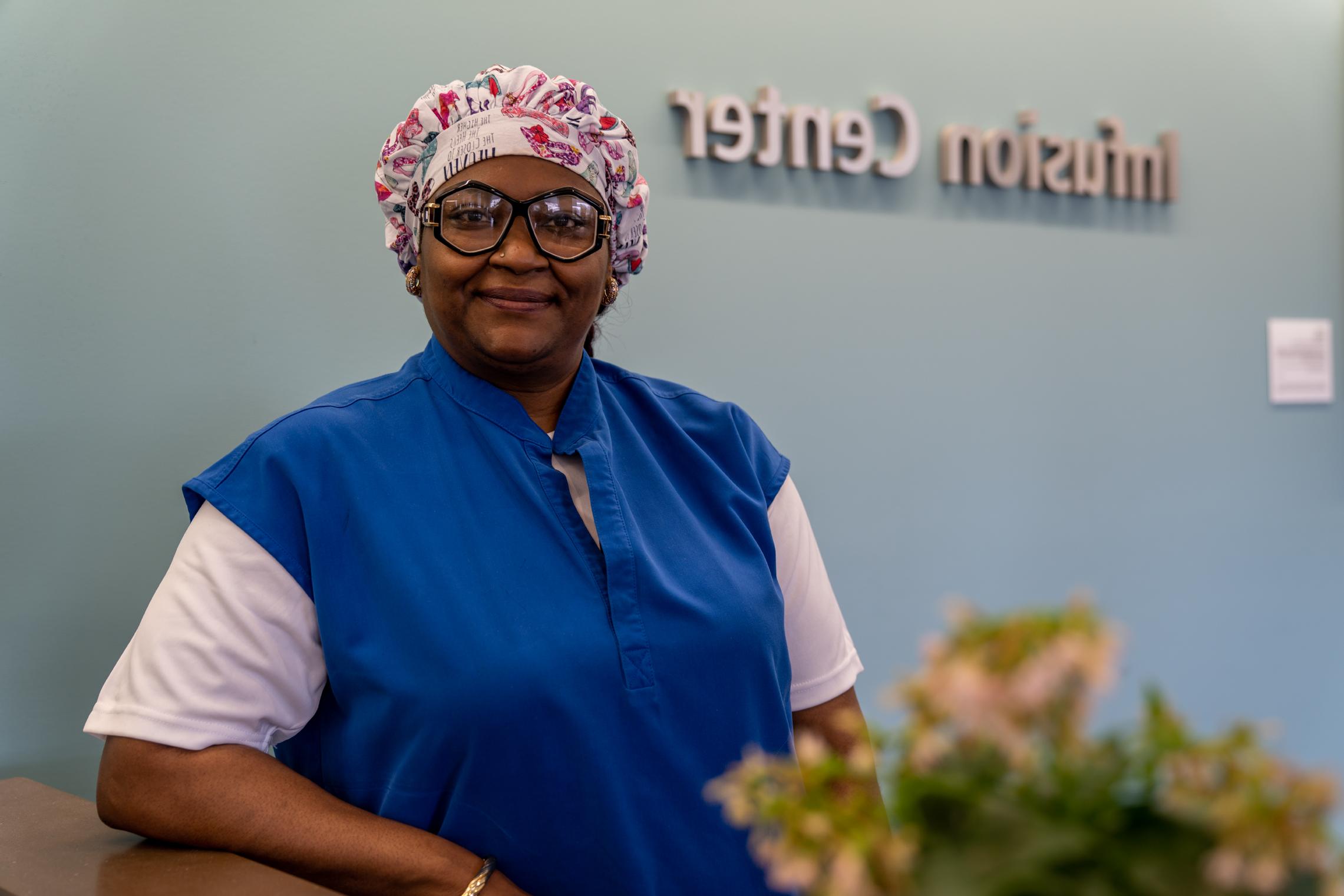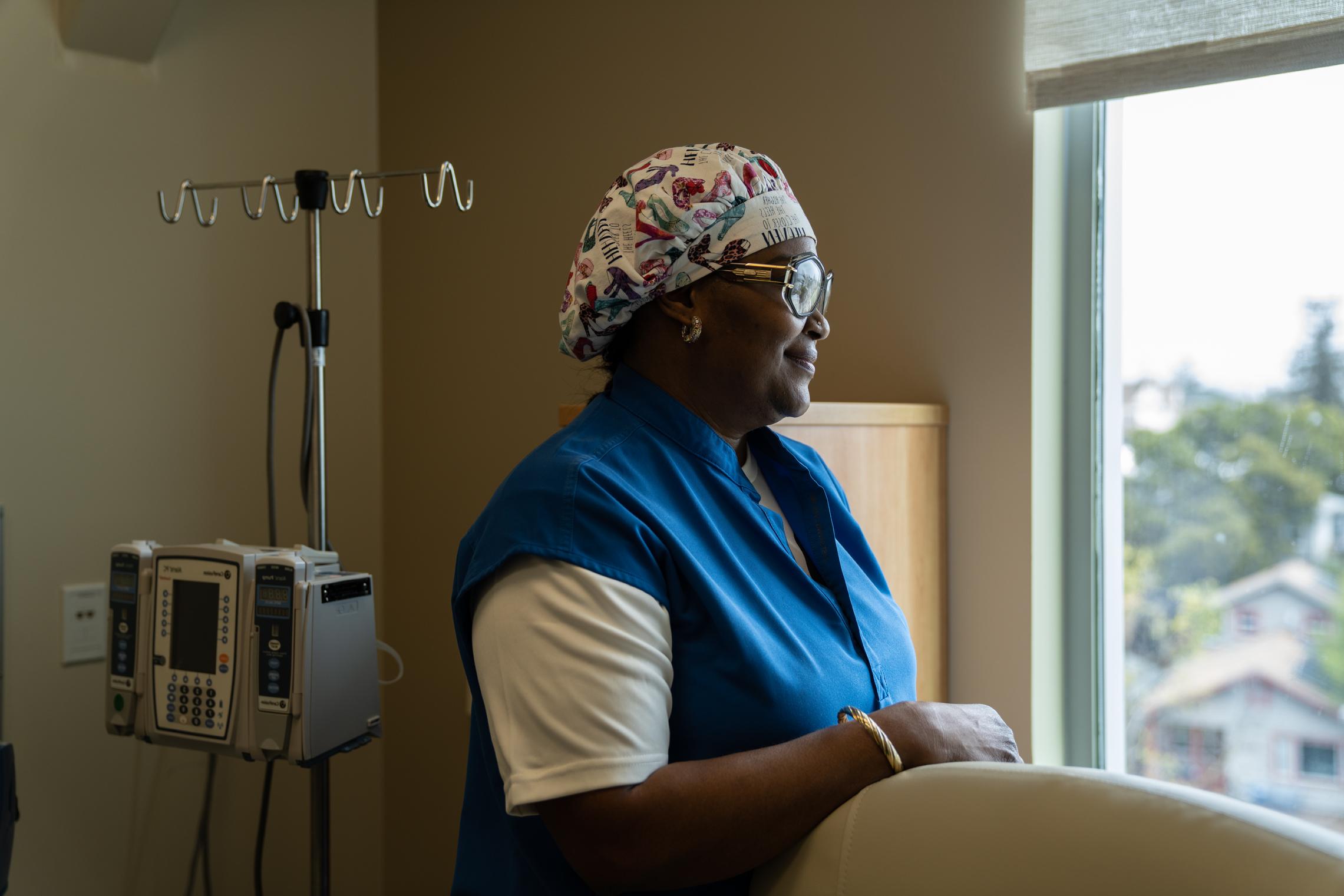
“When your doctor tells you that you have breast cancer, it’s like your world is ending. But then you have somebody from the Breast Clinic who calls you, who gives you support. It’s really, really important. They need somebody to fight with them. Because they can’t do it all alone.”
MEET
Uche Kanu
Lead Nurse
Highland Hospital Infusion Center
My mom is a breast cancer survivor. She was treated here at the Highland Hospital Infusion Center. She’s now passed the five-year survival mark. It’s really dear to me, the care the nurses gave to my mom, and that they give to all of our patients.
Because of the passion I have for patients going through this diagnosis, I’m emotional when I talk about it. I have somebody who has also gone through what most of these patients are going through.
At the Infusion Center, we take care of patients with many different diagnoses, though 70% to 80% are oncology patients. We go above and beyond to make sure we take care of their needs. And not just the patient, the whole family.
When your doctor tells you that you have breast cancer, it’s like your world is ending. But then you have somebody from the Breast Clinic who calls you, who gives you support. It’s really, really important. Patients need somebody to fight with them. Because they can’t do it all alone.
I hold my patients very dear to my heart. I think about them all the time and I wonder how they are doing if I don’t see them for a while. I’m so happy I can be here to take care of them.
When they are done with treatment and they come back to show us that they’re doing well, we are equally happy. It’s really fulfilling that we did something good for them.
Sometimes patients who have been with us for a very long time are no longer here. Sometimes we go to their funerals. Sometimes we need that closure.
We put all our energy, our love and empathy, into this profession. If you don’t love what you’re doing, there’s no way you can be in this department. Sometimes we’ll cry. It’s not that we’re weak. Our patients become part of us. Their pain is our pain. Their happiness is our happiness. That’s our job.
“Sometimes we’ll cry. It’s not that we’re weak. But our patients become part of us. Their pain is our pain. Their happiness is our happiness. That’s our job.”

